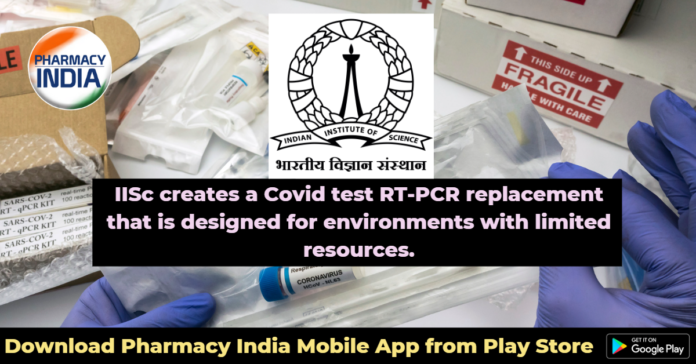A Covid testing alternative approach has been created by the Indian Institute of Science (IISc), Bengaluru, and it can be used in areas where resources are scarce. The quantitative end point RPA is a gadget that the chemical engineering department’s researchers have developed (qeRPA). Recombinant Polymerase Amplification (RPA), a different testing approach that allows reactions to be observed at room temperature and doesn’t require a heat cycler, is preferred. The real-time reverse transcription-polymerase (RT-PCR) test is now one of the quick and extremely accurate methods for detecting the Covid virus. In actuality, it is the most widely utilised on a global scale. The test, however, has numerous flaws. The necessity for a thermal cycler and real-time monitoring are the two that are most frequent.
A thermal recycler is utilised in RTPCR because some reactions must occur at various temperatures. The cycler is used to maintain a specific temperature in accordance with the reactions that must occur. For the time being, real-time monitoring aids in both determining the severity of the illness and presenting data more quickly than with other traditional testing. However in order for the quantitative RT-PCR tests to be accurate, a highly specific set of circumstances and tools must exist. The researchers from the department of chemical engineering, Priyanka Valloly and Rahul Roy, have discovered a technique to do away with both of these requirements for Covid testing. The quantitative end point RPA was created by the scientists. Recombinant Polymerase Amplification is preferred over other testing methods because it allows for monitoring of reactions at ambient temperature. This does away with the necessity for a cycler.
For the time being, the study team created a model for RPA testing that offers results that are comparable to those obtained through real-time RT-PCR without the usage of real-time monitoring. The tests revealed that both the quantitative end point Recombinant Polymerase Amplification assay and the findings were consistent. The researchers discovered real-time monitoring while assuring that testing could be done just as accurately, even though the results of quantitative end point Recombinant Polymerase Amplification eliminated the requirement for a thermal cycler. While being quicker and simpler to use, the results from quantitative end point Recombinant Polymerase Amplification were comparable to those obtained from RT-PCR. As a result, the team envisions using this method to detect nucleic acids like DNA or RNA at diagnostic facilities in resource-constrained areas like remote villages and developing countries, making diagnostic tests simple to carry out and more accessible to ensure treatment can be administered quickly.




